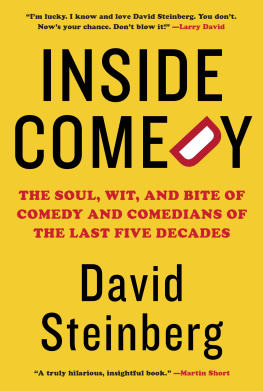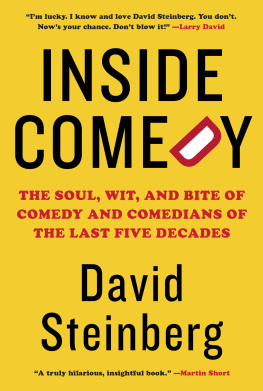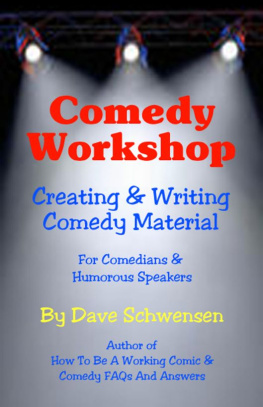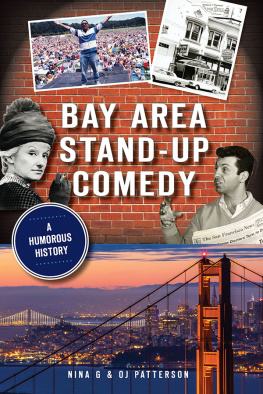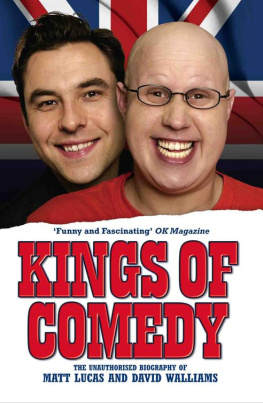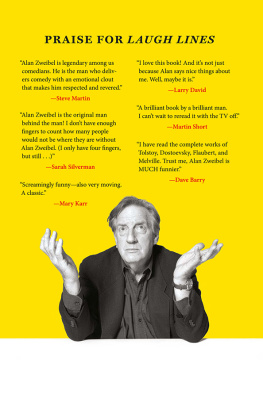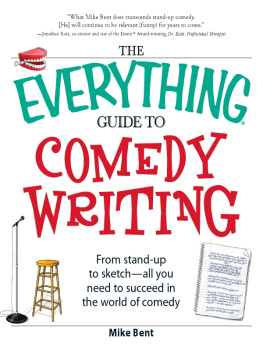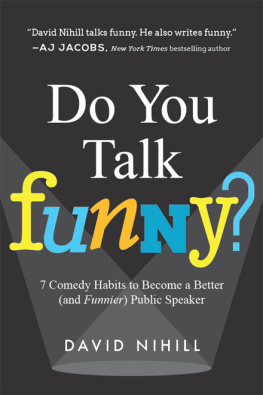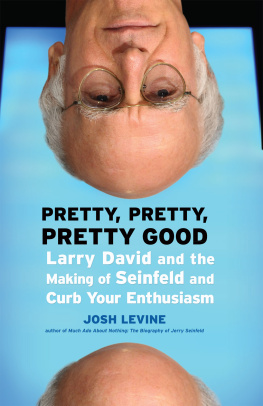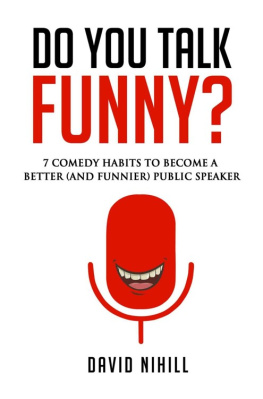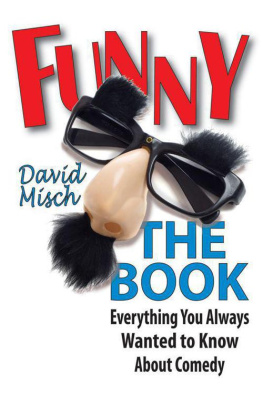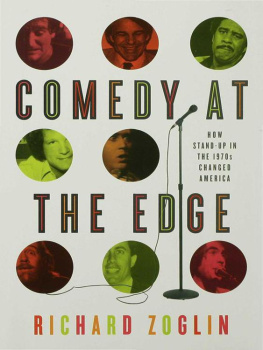CHAPTER 1
DISGUISED AS A NORMAL PERSON
Insecurity combined with arrogance is good DNA for a comedian. So is anger, aggression, and sadness. If youve had a great life and a wonderful bar mitzvah and youve been given a lot of money, youd make a lousy comedian. Youre better off being the comedians lawyer.
Ive had, and continue to have, a great career in comedy, first in stand-up, and over the last few decades, as a director of television comedy series, from Designing Women to The Bob Newhart Show, Golden Girls, Mad About You, Seinfeld, Friends, and Curb Your Enthusiasm, TV movies, my series of interviews with comedians called Inside Comedy, with several stops in between. But there were also doldrums along the waypersonal and professional. What got me through them was my love of comedylife itselfand my friendship with, admiration for, and work with other comedians. I knew most of them. I interviewed, worked with, directed, kvetched with, broke bread with, opened for, headlined for, and directed the best of them.
This book is not just my story, its their stories.
Why me? Besides being there, there are things Im too modest to tell youthat I may be the only comedian to have made Elie Wiesel laugh; that I was admired by the great New Yorker writer and humorist S. J. (Sid) Perelman, and by Philip Roth, Kenneth Tynan, and Harold Pinter. And that I was virtually adopted by Groucho Marx and many of the legendary old-timers (such as Jack Benny and George Burns) at Hillcrest Country Club. I also directed Burt Reynolds at the height of his considerable fame, before he self-destructed. Johnny Carson was my mentor and invited me to be a guest on or host The Tonight Show 140 times. I believe I am now at the cutting edge of comedy as one of the directors of Curb Your Enthusiasm, with my old friend and fellow kvetcher Larry David. And my series over the last few years, Inside Comedy, is a documentary interview show, a conversation with, if you will, more than seventy-five comedians and comic actors.
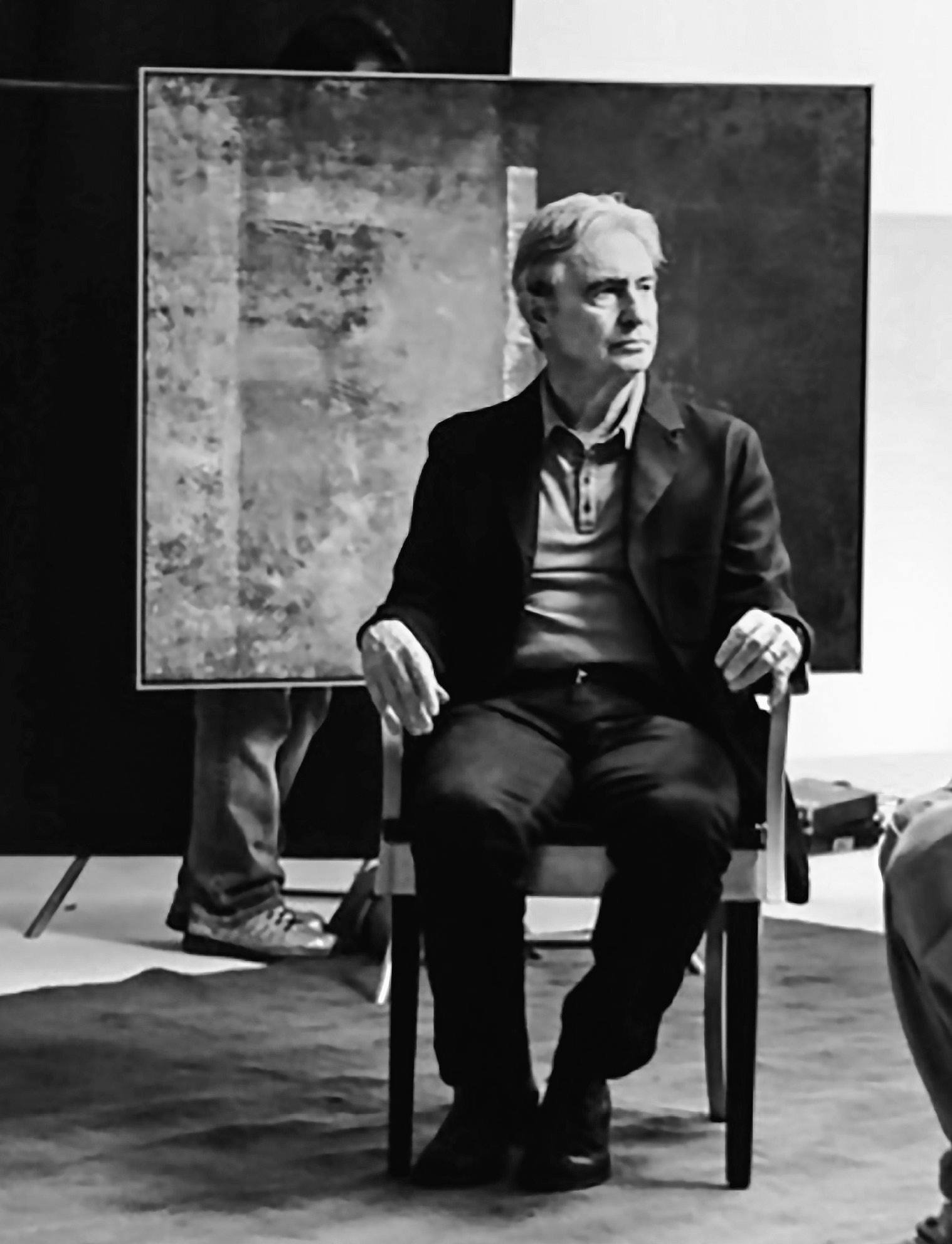
A rare moment sitting by myself on the set of Inside Comedy and waiting for Larry David, 2014.
Its a funny thing about comedy: when you give your life to it, it can become a serious business. I spent my life in and outside the comedy world, and it is a world, a universe unto itself. I was a popular stand-up comic for three decades. I was twenty-five when I first appeared at the Bitter End on Bleecker Street in Greenwich Village. I usually prowled the tiny stage in a worn brown corduroy jacketthis was 1968and I did things like improvising sermons based on the Old Testament. (That wasnt too much of a reach, because I had been a pre-rabbinical student at Hebrew Theological College near Chicago before comedy found me.)
But this book is not just about my life in comedyits about my life and comedy in the last half of the last century. I lived through a time when stand-up comedy was a poor relation to other forms of entertainment, when being on a successful sitcom was nothing to write home about. But I think I was one of a group of peoplealong with Steve Martin, Richard Pryor, George Carlin, and a few otherswho pushed stand-up forward as an art form and made comedy an important part of the culture. A comic hosting a television show used to be rare, but I hosted threeMusic Scene, which featured artists like Crosby, Stills, Nash & Young and Joe Cocker; Noonday, a half-hour midday talk show; and The David Steinberg Show, about making a TV talk show and thus a precursor to Garry Shandlings The Larry Sanders Show.
But being successful at something I loved didnt always make me happy. Like many comics, I struggled with bouts of depression. And despite the affections of beautiful, accomplished women like Tuesday Weld, Mary Ellen Mark, Susan Sarandon, and Carly Simon, I, too often, thought of the book of Job, when I should have had my mind on other things. It mustve been my Talmudic training (I had the only little black book in Hollywood that was written in Aramaic). Unlike many comics of my generation, however, I did manage to avoid heavy drug and alcohol use. With some luck I was able to dodge the heroin that floated through Second City and Saturday Night Live, killing John Belushi; the cocaine that undid Richard Pryor; and the alcoholic demons that brought down Chris Farley and George Carlin. But I was there, and I saw it all. To paraphrase the Beat poet Allen Ginsberg, I saw the best comedy minds of my generation destroyed by an angry fix.
Then I started to talk about my life. I had a little bit of the Lenny Bruce storytelling in me. On some level, that was hard and painfulyoure giving a lot of yourself, and youre showing that your ego is bigger than anybody elses. Still, the actual performing was enjoyable to me. I opened for jazz greats like Miles Davis, pop stars like Dionne Warwick and Frankie Valli, and folkies like John Denver. The musicians were fans of mine because they identified with what I was doing. I started out with audiences of five hundred people, and before I knew it, there were crowds of two thousand.
The kind of stand-up that emerged from Second City, from Lenny Bruce, and that had moved away from vaudeville was uniquely American. The early comics, who were mostly Eastern European Jews, gave way to the Irish, like George Carlin. Their comedy carried a whiff of optimism, and some of a madmans tenderness. Robin Williams had it. Richard Pryor and George Carlin had it. Just consider, while Dostoevsky was writing Crime and Punishment, halfway around the world, Mark Twain was writing The Celebrated Jumping Frog of Calaveras County.
Stand-up comedy in the 70s was different from what it is now. Now, everyone wants to be a stand-up comedian. There were clubs, most of the comedians were close friends of mine like Richard Pryor, and all the other guys were just good friends. At all the clubs that we worked at in the 60s in New York, we were opening for jazz or folk musicians, not comedians. I performed at the Bitter End, opening for Jerry Jeff Walker. I also opened for Miles Davis (we spoke for hours after each show wed done, and I never understood a word he said, as he talked so quietly). Once, Miles did a benefit at Lincoln Center and asked me to emcee it. It was sold out because he was so popular. All he cared about was music, so he went onstage, with thousands of people there to see him, and he turned his back on them to experience the music with his band of six musicians. The music was incredibleit was so atonal, as he was so ahead of everything with abstract, obscure music. When, after the performance, I said, Thank you, Miles, Ill be humming that for weeks, he took me offstage in a headlock. That was the atmosphere that I loved to be in, with artists. I also happened to love the storytelling atmosphere of the country western singers. You were always in a creative community, and what could be better than that?

